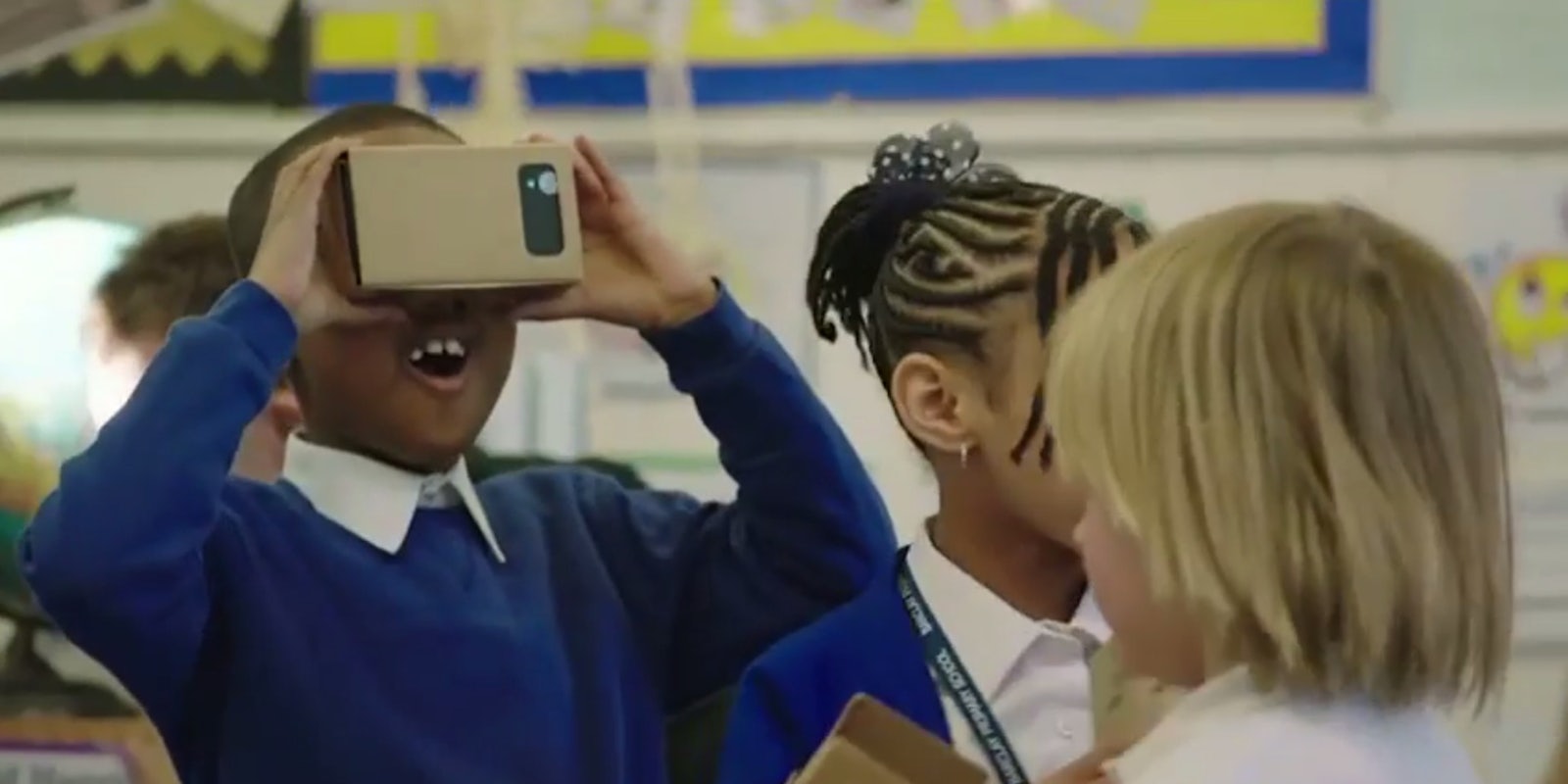A field trip to the science museum 40 minutes away from our classroom was about the furthest I traveled in elementary school, but kids these days have much more robust field trip experiences. Students will soon have the opportunity to travel anywhere in the world—or beyond it, to outer space—thanks to Google Cardboard.
At Google’s I/O developer conference on Thursday, the company announced a new program called “Explore,” which provides teachers with all the Google Cardboard virtual reality headsets and smartphones they need to take kids on virtual field trips.
Travel is completely accessible through mobile applications, so teachers can decide where they want to take their children, whether it’s around the Great Wall of China or down to the Great Barrier Reef. The program was developed with support from partners including the American Museum of Natural History, the Planetary Society, and Alchemy VR. All helped build custom immersive content for kids to hold up to their faces and be somewhere completely new.
Just think: Now, instead of watching The Magic School Bus, students can live it.
The hardware kits will include Cardboard headsets for each student, a tablet for the instructor to guide kids through the virtual reality, speakers in case teachers want to include ambient sound, and a box that acts as both a charging station and storage area. Expeditions don’t need Wi-Fi or data to work.
Google said Explore will be made available to schools around the world in the fall, though the company has released few details regarding how much it will cost or how schools can get their hands on the headsets and apps.
Over 1,000 students have already gone on a number of expeditions, and their reactions are totally adorable.
The Explore program is yet another example of how virtual reality can be used for more than just gaming or entertainment. It will enable students to visit parts of the world and feel like a part of different cultures, and communities. If done right, it could create empathy for parts of the world students wouldn’t normally experience, and hopefully help them understand what their peers in different parts of the world see and do on a daily basis.
Photo via Google/YouTube


